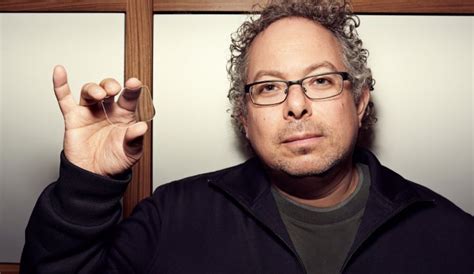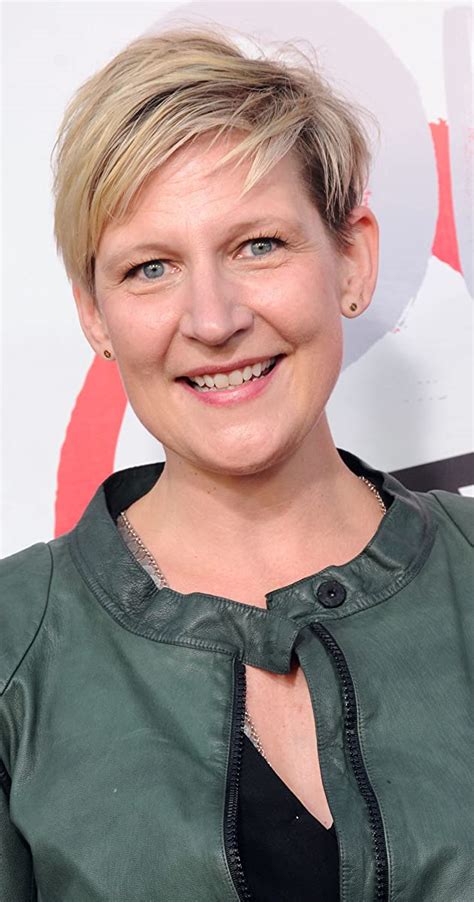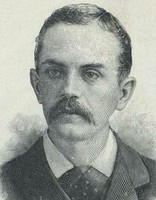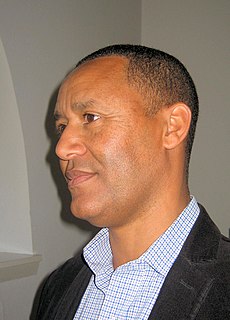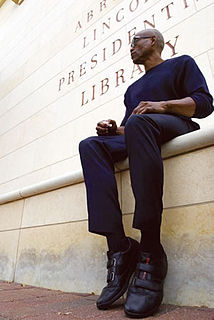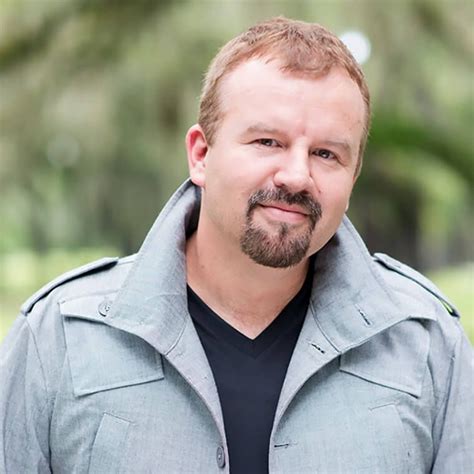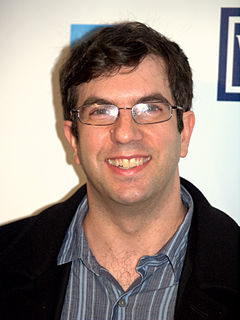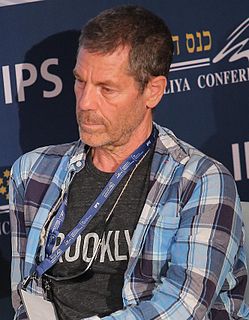Top 1200 Brain Development Quotes & Sayings - Page 14
Explore popular Brain Development quotes.
Last updated on October 31, 2024.
Here’s what I learned: First thing in the morning, before I have drowned myself in coffee, while I still have that sleepy brain I used to believe was useless — that is the best brain for creative writing. Words come pouring out easily while my head still feels as if it is full of ground fog, wrapped in flannel and gauze, and surrounded by a hive of humming, velvety sleep bees.
'Sustainable Development' is an oxymoron. 'Development' in all it's senses entails expansion and wanting more. Continual expansion and wanting more are unsustainable. Globally we are approaching the point when the only sustainable way forward is to want less. Indeed, the choice element may be removed from us and we will just have to have less. In the meantime we still have some choices about how to influence our future
Australia is a very healthy country which goes along with the fact that it's very high on the Human Development Index, high wealth, good levels of education. So Australia ranks right up there, second or third on the Human Development Index. And Indigenous Australians, if you treated them as if they were a separate country, would rank probably about 100th or below 100.
In an effort to civilize combat sports, authorities mandated padded gloves and instantly made the sports far more savage. Granted, putting gloves on the hands seems like a nice thing to do. If you were being punched in the brain by a powerful man, wouldn't you rather he strap a pillow around his fist? But the glove doesn't do anything to diminish your brain damage.
It is only by demanding the impossible of the piano that you can obtain from it all that is possible. For the psychologist this means that imagination and desire are ahead of the possible reality. A deaf Beethoven created for the piano sounds never heard before and thus predetermined the development of the piano for several decades to come. The composer's creative spirit imposes on the piano rules to which it gradually conforms. That is the history of the instrument's development. I don't know of any case where the reverse occurred.
The brain processes meaning before detail. Providing the gist, the core concept, first was like giving a thirsty person a tall glass of water. And the brain likes hierarchy. Starting with general concepts naturally leads to explaining information in a hierarchical fashion. You have to do the general idea first. And then you will see that 40 percent improvement in understanding.
Play is the highest expression of human development in childhood for it alone is the free expression of what is in a childs soul.”• “Play is the highest level of child development . . . It gives . . . joy, freedom, contentment, inner and outer rest, peace with the world . . . The plays of childhood are the germinal leaves of all later life.”• “Children are like tiny flowers; they are varied and need care, but each is beautiful alone and glorious when seen in the community of peers.
We are not born with effective vision. The human infant has to learn how to see. The eyes gather information, they transmit it to the brain, but the brain doesn't know how to process it yet. We learn how to see in a way that's very similar to the way we learn how to speak. It takes a couple of years.
Mood reflects the biology of the brain. How you feel is affected by the chemicals in the brain, and these are the same chemicals that form the basis of mood-altering drugs. You may use yoga, meditation, cognitive behaviour therapy (CBT) or exercise to alter your mood, or revert to healthy eating, regular exercise and getting enough sleep.
Pharmacogenomics holds great promise to shed scientific light on the often risky and costly process of drug development, and to provide greater confidence about the risks and benefits of drugs in specific populations. Pharmacogenomics is a new field, but we intend to do all we can to use it to promote the development of medicines. By providing practical guidance on how to turn the explosion of pharmacogenomic information into real evidence on new drugs, we are taking an important step toward that goal.
The task of neural science is to explain behaviour in terms of the activities of the brain. How does the brain marshall its millions of individual nerve cells to produce behaviour, and how are these cells influenced by the environment...? The last frontier of the biological sciences – their ultimate challenge – is to understand the biological basis of consciousness and the mental processes by which we perceive, act, learn, and remember.
The artist brain is the sensory brain: sight and sound, smell and taste, touch. These are the elements of magic, and magic is the elemental stuff of art. In filling the well, think magic. Think delight. Think fun. Do not think duty. Do not do what you should do-spiritual sit-ups like reading a dull but recommended critical text. Do what intrigues you, explore what interests you; think mystery, not mastery.
So it's like your brain has a large filing cabinet and it's opening up each drawer and it's taking in various images and memories from the day, consolidating what it needs to and puts in whatever file. And then if there's something that doesn't fit in any of the files and doesn't really belong, you'll forget about it. So it's a way of really getting a succinct way of storing things in your brain.
Most development doesn't make it to series. So you want the writer and director to have a really good experience with development because, if it doesn't work out, you want to work with them again. You have to know their work really well, know the drafts really well, and when you give notes, you need to have really thought them through.
Sleep paralysis is something that is actually very common. Many people have it, I've had it myself. And what happens is, when you're in that REM stage of sleep, your brain is very active. You're dreaming your most during that stage, you're mind, your eyes are moving, there's a lot going on. It's like fireworks going on in your brain.
The brain is the most complicated organ in the universe. We have learned a lot about other human organs. We know how the heart pumps and how the kidney does what it does. To a certain degree, we have read the letters of the human genome. But the brain has 100 billion neurons. Each one of those has about 10,000 connections.
When you're in these movie deals and the studios are talking, they're putting business deals and packages together, but they're making calls based on previous relationships. They go, "Oh, let's call this actor because we did this with him, and he might like him. Does he like him? Let's piece them together." There's a brain behind that puzzle, and I want to be the brain.
The millennium development goals are important, both morally and economically, because much of the world's population maybe is as much as a third of the world's population hasn't yet reached the level of economic development where we begin to get a dissociation from people's economic status and their reports about personal happiness. So we really do need to do much more and much more effectively in order to give everyone the kind of basis for which they can have good vibes.
At each stage of development the child needs different resources from the family. During the first year, a variety of experience and the availability of the parents for attachment are primary. During the second and third years, stimulation of language development is critical. During the years prior to school entrance, information that persuades children they are loved becomes critical, and during the school years it is important for children to believe that they can succeed at the tasks they want to master.
I do know people and there are people in my family who have had Alzheimer's and dementia, and I appreciate the importance of communication and having contact with them. Communicating is an interesting thing with a condition like that. Sometimes it's difficult to communicate. If the brain becomes atrophied or certain channels of the brain become atrophied, then contact is what becomes really important.
Besides, all evil is relative. Something that is evil at one level of evolution can be good at an earlier stage because it provides the essential stimulus for development. But you want to judge everything by your own standards. You have reached a comparatively high level and so you see what you fight against as evil. Just think of the others, those who are at an earlier stage of development. Do not bar them from the path toward progress and evolution.
What Warcollier demonstrated is compatible with what modern cognitive neuroscience has learned about how visual images are constructed by the brain. It implies that telepathic perceptions bubble up into awareness from the unconscious and are probably processed in the brain in the same way that we generate images in dreams. And thus telepathic “images” are far less certain than sensory-driven images and subject to distortion.
I always say this to people: 'If Shaq can be in the NBA for 19 years and dominate for 19 years using his body, why can't I be in the music industry for 50 years using my brain when my brain is way stronger than anyone's body?' I have to have a successful record company, more hit records. I want to dominate the game.
Extinguish my eyes, I'll go on seeing you. Seal my ears, I'll go on hearing you. And without feet I can make my way to you, without a mouth I can swear your name. Break off my arms, I'll take hold of you with my heart as with a hand. Stop my heart, and my brain will start to beat. And if you consume my brain with fire, I'll feel you burn in every drop of my blood.
The different political systems, religions and social habits demonstrate that the same brain can be tuned in different manners. But the tuning capacity is limited. We can never feel as a jaguar, for example. We can imagine a man who believes or who intends to be a jaguar, but to intend is not the same as to be. We can have other ideologies, but we will continue restricted by the nature of our brain and of our body.
The part of my brain that was responsible for creating the world I lived and moved in and for taking the raw data that came in through my senses and fashioning it into a meaningful universe: that part of my brain was down, and out. And yet despite all of this, I had been alive, and aware, truly aware, in a universe characterized above all by love, consciousness, and reality. There was, for me, simply no arguing this fact. I knew it so completely that I ached.
At age three, if you have a still-growing brain, it's a human behavior. In chimps, by age three, the brain is formed over 90 percent. That's why they can cope with their environment very easily after birth - faster than us, anyway. But in humans, we continue to grow our brains. That's why we need care from our parents.
I came back and in '63, I was at the British Open, trying to win my first British Open. And I had what I thought was a two-shot lead with two holes to play at Lytham. I remember it like it was yesterday. Anybody with a proper brain would have played the ball short of the hole. I didn't have a proper brain at the time. But you have to make that mistake to learn it.
I think the definition will change as we learn more, but my working definition of solving the brain is: one, we can model, maybe in a computer, the processes that generate things like thoughts and feelings, and two, we can understand how to cure brain disorders, like Alzheimer's and epilepsy. Those are my two driving goals. One is more human-condition oriented, and one more clinical.
The body is a reservoir of all sorts of tensions and dark forces. And it's also the potential source of amazing energy. This thing wants to live. It is a powerful engine. The brain (is) a reservoir of images, dreams, fears, associations, language. And its potential we can't even begin to understand. Movement begins to negotiate the distance between the brain and the body and it can be surprising what we learn about each other.
I decided at 40 I was wasting entire chunks of my brain and didn't want to blow my one chance on Earth. I'm glad I made that decision. Writing is largely about time, while visual art is largely about space. Sometimes, as with film, you can hybridize, but I think it's basically the space part of my brain wanting equal footing with the time part.
If the DHS insists, as bureaucracies are apt to do, that open-source must be certified via a sanctioned, formal process, it will interfere with the informal process of open-source itself. It seems to me the DHS is trying to turn an open-source development project into a Microsoft (or IBM or Oracle) software development project. And we know what that means: more, not fewer, errors -- security and otherwise.
You love the person for who they are, flaws and all. You can't help who you love, either. It comes from a different side of your brain than the logic part that tells you that this person is horrible for you - "You should walk away!" While you're walking away, the other part of your brain is trying to gain control of your bodily functions. "Turn around! She's the one!"
I can't afford it' shut down your brain. it didn't have to think anymore. besides, it also brings up sadness. a helplessness that leads to despondency and often depression. 'How can I afford it?' opened up the brain. forced it to think and search fro answers. it also opens up possibilities, excitement and dreams and created a stronger mind and dynamic spirit.
Let me tell you, though: being the smartest boy in the world wasn’t easy. I didn’t ask for this. I didn’t want this. On the contrary, it was a huge burden. First, there was the task of keeping my brain perfectly protected. My cerebral cortex was a national treasure, a masterpiece of the Sistine Chapel of brains. This was not something that could be treated frivolously. If I could have locked it in a safe, I would have. Instead, I became obsessed with brain damage.
It's gross. We use real brains - I think they're lamb or cow or something. Intestines smell. Brains don't really smell, but what's amazing about the brain is that it's almost like scrambled eggs or soft tofu, almost like a gel. The brain controls so much of what we do, but you could put your finger right through it.
Alpha waves in the human brain are between 6 and 8 hertz. The wave frequency of the human cavity resonates between 6 and 8 hertz. All biological systems operate in the same frequency range. The human brain's alpha waves function in this range and the electrical resonance of the earth is between 6 and 8 hertz. Thus, our entire biological system - the brain and the earth itself - work on the same frequencies. If we can control that resonate system electronically, we can directly control the entire mental system of humankind.
If little else, the brain is an educational toy. Why it may be a frustrating play thing - one whose finer points recede just when you think you are mastering them - it is nonetheless perpetually fascinating, frequently surprising, occasionally rewarding, and it comes already assembled. [...] Alas! the brain is a toy that plays games of its own. Its very most favorite game is the one-thing-leads-to-another game.
Political movements for justice are part of the fuller development of the cosmos, and nature is the matrix in which humans come to their self-awareness of their power to transform. Liberation movements are a fuller development of the cosmos's sense of harmony, balance, justice, and celebration. This is why true spiritual liberation demands rituals of cosmic celebrating and healing, which will in turn culminate in personal transformation and liberation.
Bell Labs Cafeteria, New York, 1943: His high pitched voice already stood out above the general murmur of well-behaved junior executives grooming themselves for promotion within the Bell corporation. Then he was suddenly heard to say: "No, I'm not interested in developing a powerful brain. All I'm after is just a mediocre brain, something like the President of the American Telephone and Telegraph Company."
Well, the first thing we do is take our brain out and put it in a drawer. Stick it somewhere and let it tantrum until it wears itself out. You may still hear the brain and all the shitty things it is saying to you, but it will be muffled, and just the fact that it is not in your head anymore will make things seem clearer. And then you just do it.
I think that when you go on a shamanic journey, you're allowing yourself to have much more access to your unconscious or your sense of connection within the universe, whatever you want to call that. You've accessed places in your brain that you don't normally. You're still there - it's your brain. But you have access in a way that you normally don't. For me, doing that felt like being in a new environment.
This is the hallmark of a robust biological system: political parties can perish in a tragic accident and the society will still run, sometimes with little more than a hiccup to the system. It may be that for every strange clinical case in which brain damage leads to a bizarre change in behavior or perception, there are hundreds of cases in which parts of the brain are damaged with no detectable clinical sign.
I mean I think that when you've got a big brain, when you find yourself planted in a world with a brain big enough to understand quite a lot of what you see around you, but not everything, you naturally fall to thinking about the deep mysteries. Where do we come from? Where does the world come from? Where does the universe come from?
It is certain that there may be extraordinary mental activity with an extremely small absolute mass of nervous matter: thus the wonderfully diversified instincts, mental powers, and affections of ants are notorious, yet their cerebral ganglia are not so large as the quarter of a small pin's head. Under this point of view, the brain of an ant is one of the most marvelous atoms of matter in the world, perhaps more so than the brain of a man.
The very same brain centers that interpret and feel physical pain also become activated during experiences of emotional rejection. In brain scans, they light up in response to social ostracism, just as they would when triggered by physically harmful stimuli. When people speak of feeling hurt or of having emotional pain, they are not being abstract or poetic, but scientifically quite precise.
It is especially important for managers to know about, neuroplasticity, the greatest discovery in neuroscience in the past 20 years. It refers to the fact that the brain is remarkably plastic. It can grow and change for the better throughout life. In fact, "plastic" denotes the brain's ability to grow and change throughout life.









